Home
Pfizer and BioNTech announced a vaccine against Covid-19 of 90 per cent efficacy from two injections three weeks apart. It was not known if it prevented transmission of the virus. The vaccine has to be stored at an ultra-low temperature of minus 80˚C. In July, the British government had bought 40 million doses, enough for a third of the population, with ten million available by the end of the year (along with access to five other vaccine candidates, totalling 340 million doses in all). The army and police planned vaccination centres. Shares in air transport went up; shares in Zoom went down. Asked whether we could say with confidence that life should be returning to normal by spring, Sir John Bell, the Regius Professor of Medicine at Oxford, said: ‘Yes, yes, yes.’
At the beginning of the week, Sunday 8 November, total deaths (within 28 days of testing positive for the coronavirus) had stood at 48,888, including 2,333 in the past week, compared with 1,810 the week before. Boris Johnson, the Prime Minister, foresaw England returning, on 2 December after its four-week lockdown, to restrictions according to tiers. An investigation, nicknamed Operation Chatty Rat, into who leaked plans for the second lockdown (thus precipitating it), examined the mobile phone data of Matt Hancock, the Health Secretary, and Michael Gove, the Chancellor of the Duchy of Lancaster. After a 17-day ‘firebreak’ lockdown, Wales allowed churches to reopen and people in groups of four to meet in pubs as long as they did not go into England. Wales cancelled GCSEs and A-levels for 2021. In England plans were hatched for mass testing in 67 locations and of university students before they are allowed back home. Greg Clarke resigned as chairman of the Football Association after referring to ‘coloured footballers’.
Unemployment rose to 4.8 per cent in the three months to September, from 4.5 per cent; among those aged 16 to 24 the rate was 14.6 per cent. Six boats carrying 159 migrants were found in the Channel on one day, bringing the year’s total to 7,915. As Michel Barnier, the EU’s chief Brexit negotiator, and Lord Frost, his UK counterpart, resumed trade talks in London, the Lords defeated the Internal Market Bill by 433 votes to 165. Lord Jonathan Sacks, Chief Rabbi of Britain and the Commonwealth, died aged 72. Geoffrey Palmer, widely known as a television comedy actor, died aged 93. Sainsbury’s closed its meat, fish and deli counters.
Abroad
Joe Biden, the Democrat candidate, was accepted by America as its 46th president, after it became clear that he had secured a majority of electoral college votes. President Donald Trump persisted, while postal votes were still being counted, in denying he had lost and, between rounds of golf, spoke of lawsuits. Both candidates received more than 70 million votes. The Democrats retained a majority in the House of Representatives. Control of the Senate would depend on a run-off for the two seats in Georgia, to be held on 5 January; if both go to the Democrats, the Senate will be split 50-50. Mr Trump sacked Mark Esper as defence secretary. Mr Biden chose members of a future coronavirus advisory board and found time to telephone Boris Johnson.
Denmark set about killing all 17 million mink on its fur farms after some were found to be carrying a mutated form of coronavirus that can spread to human beings. The total number in the world who had died with coronavirus reached 1,255,906 by the beginning of the week, an increase of 54,033 from the week before. Belgium, though it had seen only about 13,000 deaths, was well ahead globally in fatalities per million population, at 1,125, compared with the US at 735 and the UK at 723. Saeb Erekat, the Palestinian political figure, died of Covid-19, aged 65. In Leipzig more than 20,000 people marched with banners denouncing ‘coronalies’.
More than 1,600 African migrants reached the Canary Islands over the weekend, bringing to 11,000 the number who had arrived this year. In Mozambique, Islamists linked to Isis were reported to have beheaded more than 50 people on a football pitch in a village in the Cabo Delgado province, which produces natural gas. Armenia, Azerbaijan and Russia signed an agreement to end fighting in Nagorno-Karabakh, to which Russia deployed hundreds of troops. A bear and its cub were shot dead after they climbed on to a Russian submarine moored off the Vilyuchinsk base in Kamchatka. CSH
Got something to add? Join the discussion and comment below.
Get 10 issues for just $10
Subscribe to The Spectator Australia today for the next 10 magazine issues, plus full online access, for just $10.
You might disagree with half of it, but you’ll enjoy reading all of it. Try your first month for free, then just $2 a week for the remainder of your first year.

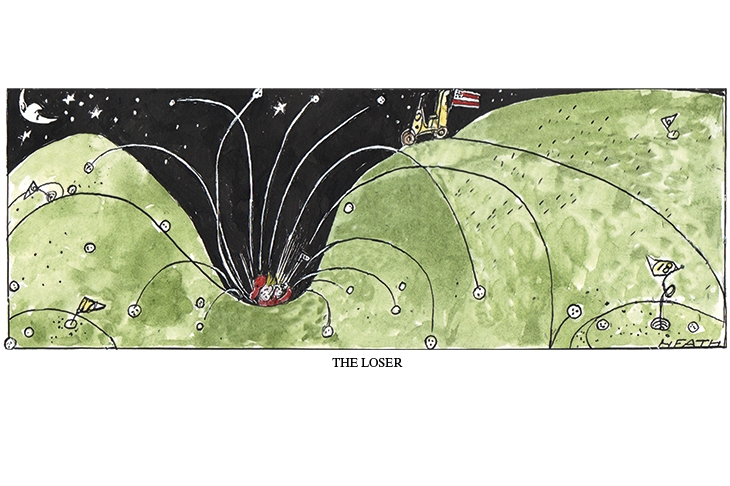
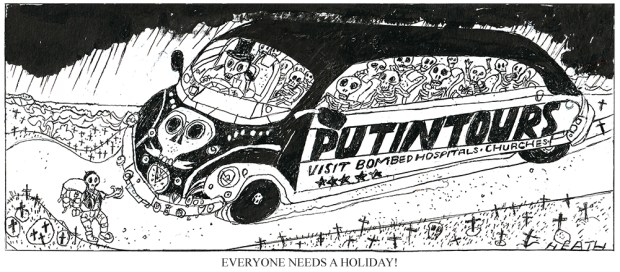
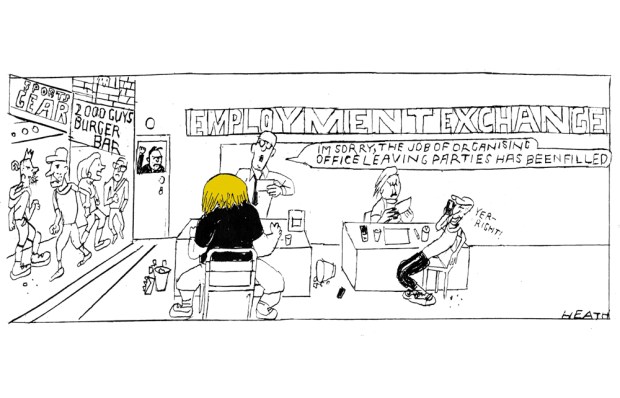
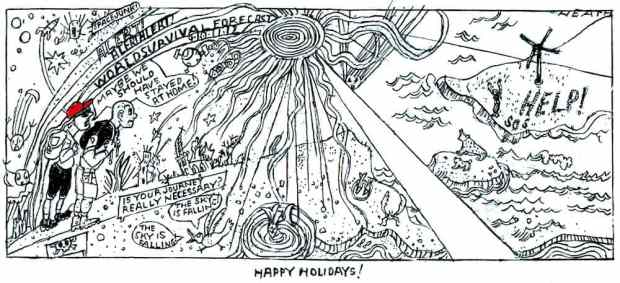

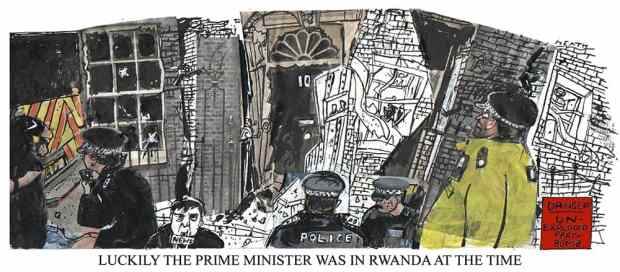







Comments
Don't miss out
Join the conversation with other Spectator Australia readers. Subscribe to leave a comment.
SUBSCRIBEAlready a subscriber? Log in